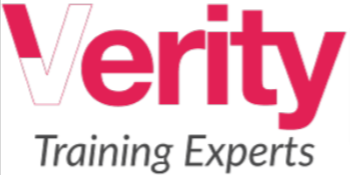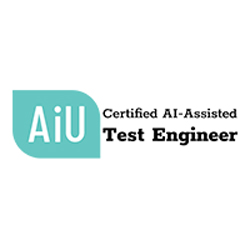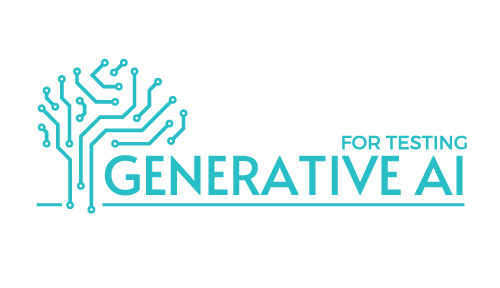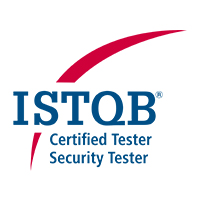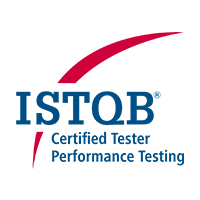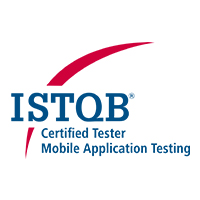Agile Courses, ICAgile
Coaching Agile Transformations (ICP-CAT)
- 300 + Students Empowered
- 4.5/5 Best Selling Program
- Format Instructor-Led online Program and Self-Learn Online Program
- Start Date: Instructor-led program on Jun 29-30, 2024
Course Description:
The Coaching Agile Transformations (ICP-CAT) is the second of two knowledge-based certifications on the Enterprise Agile Coaching Track. This certification focuses on Agile Transformations, explores the core elements of an agile transformation, and links the core enterprise coaching competencies in a way that empowers coaches to act as agents of change in organizations.
Course Objectives:
➜ Core elements of an Agile Transformation.
➜ Field of Enterprise Coaching.
➜ Personal and Professional Mastery.
➜ Creating a case for change.
➜ Meeting organizing tools.
➜ Organizational Systems Entry.
➜ Organization Assessments.
➜ Communicating at the Organization Level.
➜ Educating at the Organization Level.
➜ Facilitating at the Organization Level.
➜ Large Group Facilitation Methods.
➜ Co-Creation of Strategy.
➜ Organizational Change Process.
Who Should Attend?
Coaching Agile Transformations (ICP-CAT) Certification Training program is most suitable for the leadership team, senior management, change agent, agile coaches, and scrum masters. And also,
➜ Team coaches
➜ Multi-team coaches
➜ Enterprise Agile Coaches
➜ Leadership Teams
➜ Senior Managers
➜ Anyone who is managing a team in an organisation moving towards agility
Course Topics:
What is the field of Enterprise Agile Coach (EAC)?
EAC is a set of skills that enable practitioners to catalyze the adaptation and transformation of organizational agility in alignment with the organization’s vision, goals, and needs in a turbulent and complex world.
Ethical Considerations of EAC
EAC practitioners engage with all levels of the organization to support the desired change. Many of the tools and methods used come from several originating professions and require knowledge of their ethical context for proper application.
Organizational Change Strategy
Successfully increasing organizational agility requires some degree of organizational change and a well-thought-out change strategy. The change may be seen as adoption, a transition, or a transformation.
Human Change Process
Any change within an organization has at least two aspects, the tangible change (whether technical, business, or organizational) and the human reaction to that change. To effect real change requires more than driving through a list of “change management” to-do’s and helping people understand what it means to them and move through their internal change process to adapt to the change successfully.
Agile Mindset to Change
Agile brings about a mindset shift from “change as an exception” to “change as a norm.” That should infuse change into the organizational change process. Approaching change positively, creatively, collaboratively, and continuously enables an effective and sustainable Agile practice.
Educating at an Organizational Level
Given the fundamental mindset shifts Agile provokes, education is essential to empower people to do their work differently and allows them to contribute throughout the Agile change process meaningfully. A broad-based education strategy also magnifies the impact of coaching.
EAC Competencies
EAC is a discipline with broad awareness of business, technical and transformational agility with deep competence in one or more knowledge areas (e.g., organizational development, culture, change management, technical and enterprise practices, leadership development) and skills such as teaching, mentoring/advising, professional coaching, and facilitating.
Organization Systems Entry
EAC has roots in organization development (OD) interventions. Borrowing from OD, the first step in such an engagement is systems entry. That culminates in a shared understanding of the goals and objectives. Systems entry also enables an engagement and agreement on how to proceed.
Understanding, Identifying, and Addressing Organizational Impediments
Organizational impediments are often revealed during change. At an enterprise level, impediments are magnified in the cost and scope of their impact. Frequent complaints, challenges, or less than desired outcomes often indicate more significant/more profound organizational impediments that need to be exposed and addressed in the change strategy over compromising agility.
Organizational Change Process
Organizations are complex, and changing them is an even more challenging proposition. A structured and informed approach to the change process improves the chances of success of an agile transition.
Facilitating at an Organizational Level
Engaging varied large groups and people at an executive level within an enterprise context requires more consideration and planning than team-level facilitation due to the time and dollars invested and the more complex group dynamics involved.
Testimonials:

“Thank you for a great course. Gaurav was very aware of the topics which were planned for this certification.
Explanation to each topic was explained in an easy and understandable way.
Gaurav patiently answered all the questions which were asked to him.
Overall course has helped me to address the challenges which we were noticing while implementing DevOps in our own organization”
Vandana Singh, Sr. IT QA Analyst, Eaton Technologies Private Limited

Certified Tester in Artificial Intelligence dives into exploring the concepts of AI and testing tools/strategies revolving around AI.
Contents and Live Exercises are designed to engage in a very effective manner. Trainers were very knowledgeable and experienced, imparting their wealth of knowledge in an effective way.
I would definitely recommend this programme for all the QA Folks as part of Development.
Ankit Bajaj, Senior Technical Lead, IBM

The training conducted for Certified Tester in Artificial Intelligence is focused and coherent. It has been very useful for me.
I would like to highlight the dynamic of the sessions, very active, interesting, well organized and an easy-to-follow course of AI/ML learning.
Outstanding teaching skills by Vipul Kocher, he is very knowledgeable and passionate about teaching.”
Priyanka Pawar, Full Stack Test Specialist, IBM

“It was truly my pleasure to be a part of the Global Accredited Course on AI in Testing – it really was a brilliant learning experience!!
Thanks to the coaches Vipul and Saurabh for making this an insightful yet a fun-filled course – and walking us through the world of AL, ML and DL with live applications and practical testing strategies.
A special note of thanks to Team Verity team seamlessly coordinating this program without a glitch. Here’s wishing them my best”
Rajesh Kannan, Director, Deloitte Touche Tohmatsu India LLP

“This course was a great learning experience which was delivered proficiently by the experts. It’s very well-articulated with insights on the testing perspective of AI/ML.
Special mention to the hands-on exercises in python for data pre-processing and AI metrics.
The training has raised the bar for the testing community and will open up new opportunities for testing in the changing world of AI.
I really liked the way the exercises have been sorted out in folders and explained by Mr Bansal. Very helpful for future references.”
Smita, Assistant Vice President, DBS Bank

I work for IBM and have done the Selenium United course as part of the reskilling program. This course is an excellent way to upgrade me with the latest technologies in the field of automation testing.
I feel highly honoured and privileged to have done this course and truly enrich myself in a niche technology. I also feel great to pass the rigorous exam which tested my Selenium expertise to the fullest.
When I look back after a few years of my career with Selenium, I can proudly say that this was the course where it all began.
Payel Biswas, Test Automation Engineer, IBM

The training sessions conducted by Verity Software for Cloud Migration Test Specialist were well articulated and quite interactive.
The trainers were really good and supportive. They helped us both theoretically and practically. The training materials were really helpful in clearing the certification exam.
Overall this training helped me in upgrading my skills and being a test specialist. It helped me to clear the concepts of Cloud Migration and various aspects of testing required. Thanks to Verity Software and the trainers Jayapradeep and Smitha for such a wonderful learning experience.
Divya Rajpal, Test Specialist, IBM

Thank you for sharing your knowledge. It is very informative and helpful.
Exercises during training were easy to understand and very detailed. It is very nice to have exercises at the end of each module.
Your support, communication and coordination is great.
Thank you for the great training.
Anita Meka, Salesforce QE
FAQ:
What is the duration and timings of this course?
NA ..
Do you provide any tools with this course?
No. We do not provide any tools with this course.
Does this certification have a lifetime validity?
Yes this certification is valid for lifetime.
Do you provide placement services post completion of the course?
No, we do not provide placement.
What is the maximum batch size?
The maximum batch size is 20 members in one batch.
Will I get support post the training?
Yes post training support will be provided, you can contact the trainers for any queries which you may have.
Do I need to know coding for this course?
No, coding is not a prerequisite.
What if I am unable to attend the batch which I have registered for? Can I attend the next one?
We strongly recommend that the participants attend the batch which they have specifically registered for. There can be exceptions in case of emergencies but the difference in fee(if any) will have to be borne by the participant.
Can I get a refund if I cancel my registration?
No we do not provide refunds upon cancellation.
Can an In-house batch for our company be arranged for the course?
Yes we can arrange for an in-house batch for your company given there are a minimum of 10 participants per batch.
Instructor:

Ramit Manohar
Program highlights:
- Instructor-led programs
- Real life case studies
- Assignments
- Certification
Book your slot:
December 09-10, 2023
Book your slot
June 29-30, 2024
February 17-18, 2024

